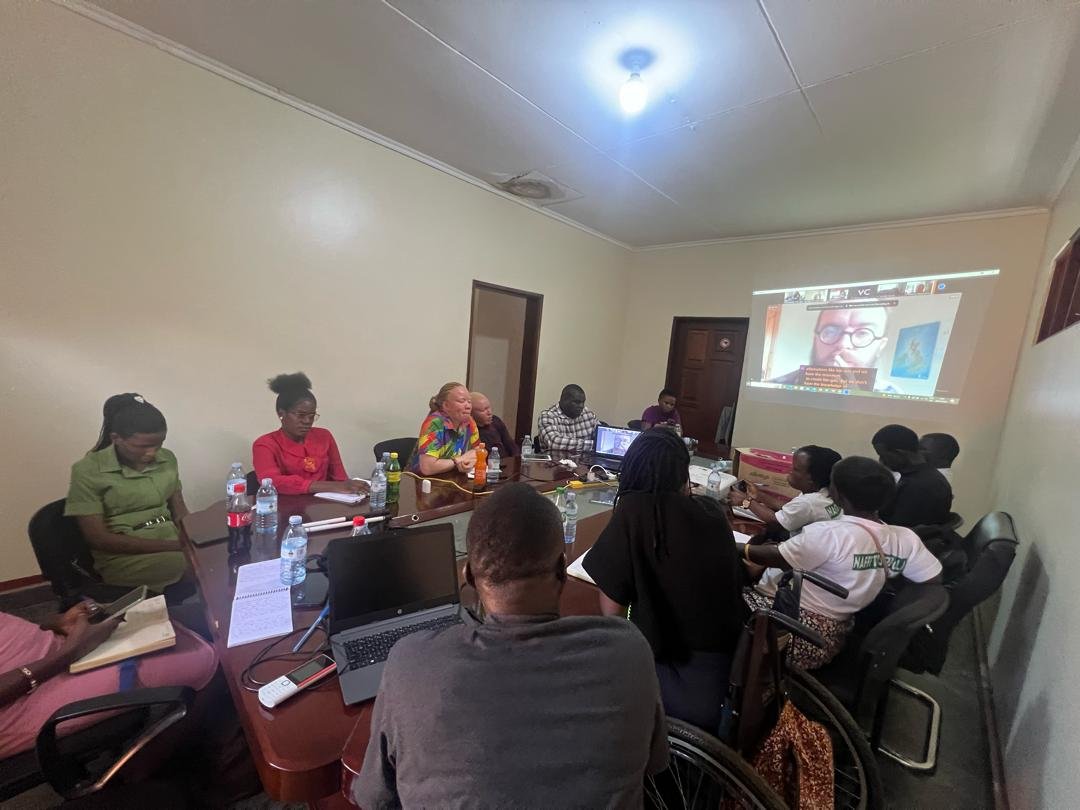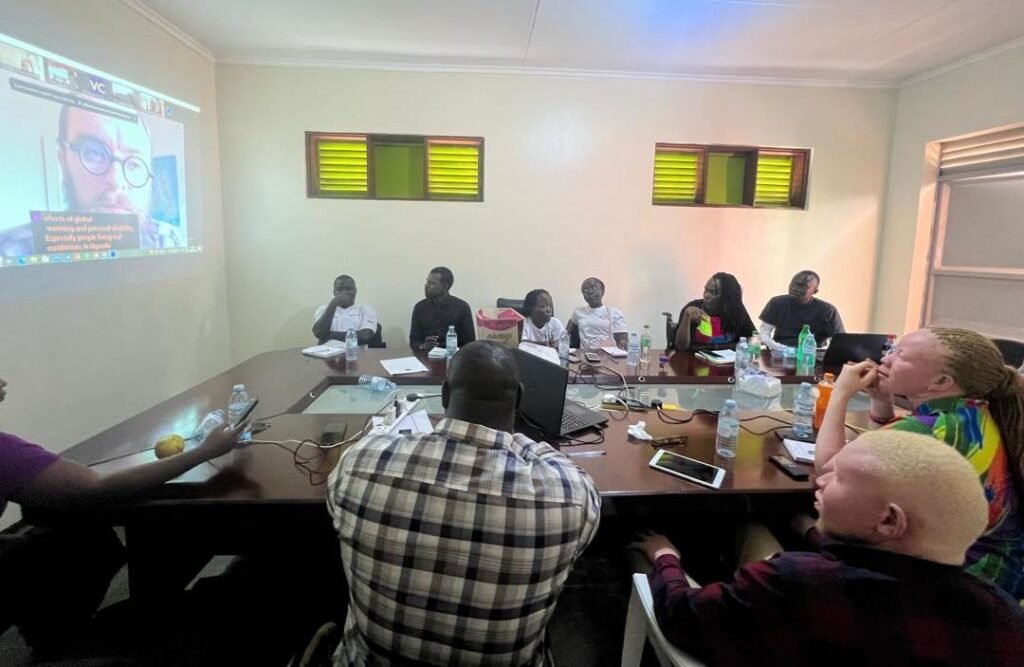
Since 2020, Viatores Christi (VC) has engaged in active efforts to review and edit its online training programmes, with the aim of making the courses more inclusive and accessible. Most recently, VC has made strides toward strengthening the accessibility of its annual Venture training programme, with generous support from Irish Aid.
Identifying Gaps
In 2020, VC engaged in the EU Aid-funded VIVID-T project, working towards disability inclusion in humanitarian action and volunteering. One key takeaway for VC from this project was learning that although 15% of global population have a disability, people with disabilities are critically underrepresented in the development sector – on boards, staff, as trainers or Global Citizenship Education (GCE) facilitators. They are often unable to access the area of GCE in Ireland due to inaccessible content and delivery methods.
First Partnership
During the VIVID-T project, VC formed a working relationship with Abilis Foundation Finland, an organisation founded and run by persons with disabilities. VC has since pursued an Erasmus+ small scale partnership project in collaboration with Abilis Foundation which aimed to contribute to bridging the GCE accessibility gap. This project produced an inclusive, accessible, online learning module focusing on the subject of Climate Change and Disability.
Today: Accessible Venture Training
Building on efforts to strengthen the accessibility of its training programmes, VC is now in the process of evaluating and updating its Venture programme. Venture is a capacity building training programme, targeting current and aspiring international development workers. Its aim is to build practical skills for impactful work in the field via participation in live training workshops and a series of online self-directed training modules, delivered by expert development practitioners.
With the support of Irish Aid (2022-2024), VC has made strides toward strengthening the inclusivity of its training programme. For instance, VC has implemented live sign language interpreters and real-time closed captioning to ensure simultaneous access for individuals who are deaf or hard of hearing, as required. The associated online self-directed course offerings have all been updated with closed captioning.
Trial to Determine the Accessibility of the Venture Programme
In January 2024 VC welcomed the attendance of 15 people with disabilities onto the Venture live interactive training course. All participants were engaged in the international development sector. The individuals agreed to participate in the workshops and review the accessibility of the programme. The chairperson of VC’s partner organisation FOHO Uganda, Michael Miiro, an activist in the field of disability inclusion, facilitated this arrangement.
The participants attended the workshops online via Zoom. With Irish Aid support, VC rented a conference room and projector for the group to engage with the workshops in a collaborative learning environment from their location in Kampala, Uganda. Reasonable accommodation in the form of sign language interpreters and an online manual closed captioner was made available for those who were deaf or hard of hearing. Workshop trainers were given guidance on creating accessible learning materials e.g. PowerPoint presentations, for individuals with vision impairments.

Setting New Standards for Accessible Training
The Venture programme evaluation confirmed the effectiveness of accessibility measures and revealed further insights into best practice around delivering inclusive training. This initiative has allowed VC to develop a blueprint for delivering inclusive and accessible training, setting a standard for the wider development sector. Through collaborations with partners like Abilis Foundation Finland and with support from organisations such as Irish Aid, VC is breaking down barriers and striving to foster greater representation of persons with disabilities in development work. Moving forward, VC will continue to prioritise accessibility, working towards creating equal opportunities for all individuals to contribute meaningfully to global development efforts.

